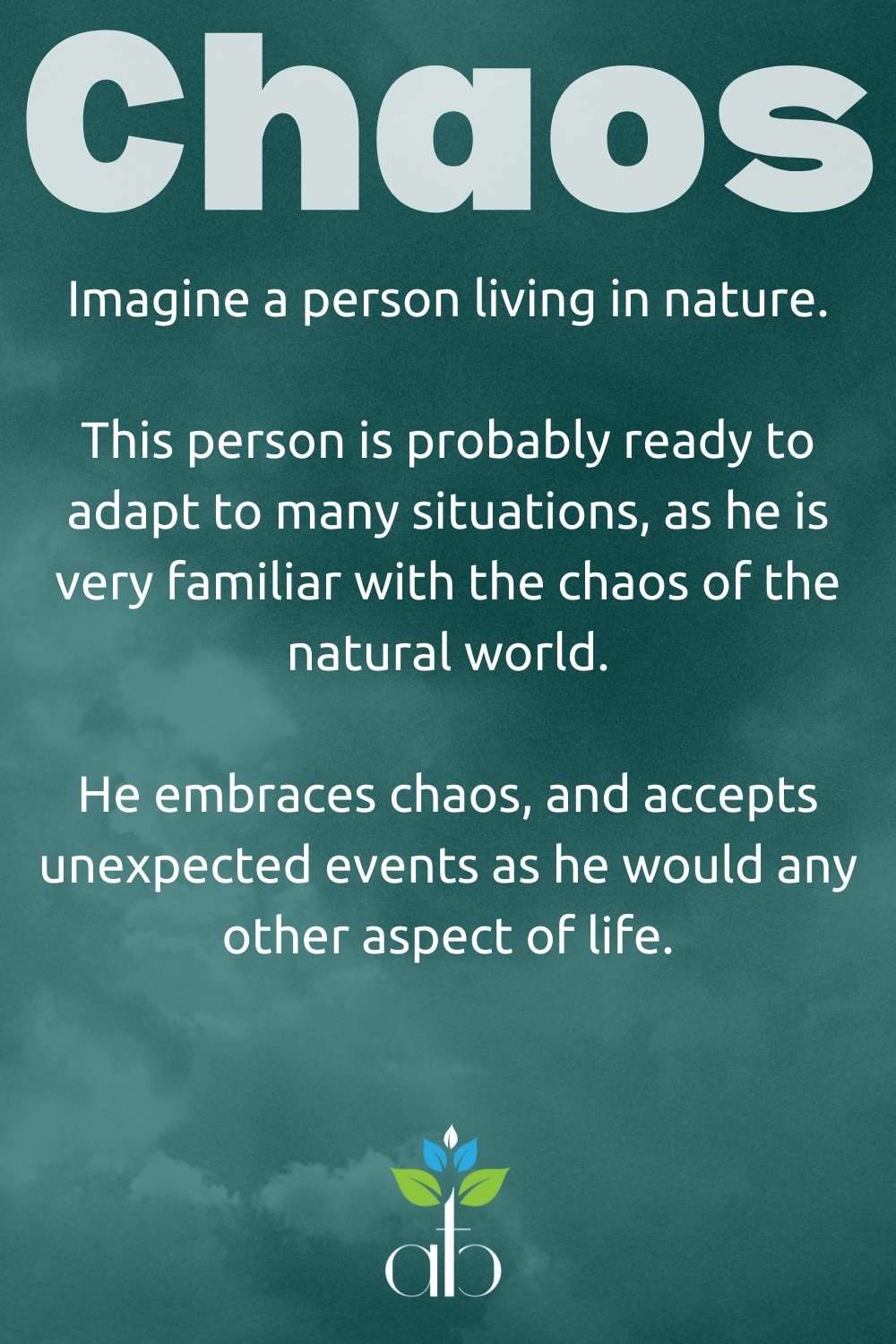Episode 335
Welcome Chaos

We might think that most dysfunctions of the mind stem from disorder. However, in Michael Pollan’s book How To Change Your Mind he presents the evidence that neurosis normally comes from an excess of order.
The classic example is “obsessive compulsive disorder”. A person finishes washing his hands and decides he needs to wash them again, and again, until he has washed them 17 times. The mind has so much order that he finds it difficult to escape from this routine.
In your own travels you might have noticed in countries where everything runs on time, people tend to be more neurotic. In countries where things are chaotic, where you can’t rely on the systems, people tend to be more easy-going.
Likewise, if you imagine a person living in the chaos of the jungle, he is likely to be mentally stable, and able to adapt to many situations that arise.
When things go wrong, we might become irritated or angry. Really, these things serve to bring us into the random or unknowable nature of the universe. By welcoming chaos, we are welcoming life.
Hosts & Guests
Kurt Robinson
Transcript
So I was reading Michael Pollan’s book, How to Change Your Mind and in it he talks about how psychedelic substances can introduce level of chaos into our brains, he describes it as entropy.
\What happens in our brains is we have the default node network and this is kind of the part of the brain that is active when we aren’t focusing or putting our attention or trying to do a specific task.
This is sort of the background noise that goes on within our brains. And he finds from talking to neuroscientists and researchers about psychedelic substances he finds that this default node network gets shut off or significantly reduced when we take these substances.
That is what allows the new pathways to start to take shape in the brain.
He says about how a lot of the time we might think about mental illness. I don’t particularly like that term, a particular mental disorder we might think of being too chaotic. But actually Polland makes the point that it is normally not like that. There are certain dysfunctions that are related to increasing chaos which are like psychosis or more specifically schizophrenia.
But a lot of the dysfunctions that happened, I don’t really like these terms but they are probably terms you can understand. For example with obsessive compulsive disorder. It’s actually about excessive order. For example you start washing your hands, well you want to wash your hands another time to make sure they are clean. And another time. And another time until you are stuck in this routine until you have to wash your hands 17 times to really feel like they are clean.
That is too much order, not too much entropy or chaos.
A lot of the time what I find in my own experience and you can imagine this if you’ve done some traveling. Perhaps you will notice a lot of the time in countries where everything runs on time, people do tend to be quite neurotic. They expect this order.
But in countries like developing nations where things don’t always go according to plan, they keep adjusting plans where people might arrive half an hour late. You find people are less neurotic because they are willing to accept things are different.
Maybe the hot water doesn’t work, maybe the water doesn’t even work. Maybe the electricity goes out and these are things you more or less anticipate will happen.
Perhaps even the country goes through a grand crisis every now and then and you can’t rely on the government to help. I live here in Mexico and I find people aren’t really neurotic because there is constant chaos, in part from the people and in part from the circumstances and systems. We can also imagine, if you imagine a person who spends a lot of time in nature.
Imagine, do you think this person is neurotic? Probably not. They spend a lot of time in the beautiful chaos of nature. Most likely this person is quite well balanced, mentally healthy and able to respond to a lot of situations.
It’s kind of funny because a lot of the time we think if something goes wrong we might get irritated or angry but these situations are really helping us.
Just like with a tree, if you take a tree and you put it in an environment like a greenhouse with no wind it will never grow a certain kind of bark or fiber or wood that will enable it to withstand the wind.
These trees really need that bit of strength that comes from a little bit of pressure. So in the moment, maybe we get agitated about things not going our way but perhaps these things that are a bit different are actually blessings for us.
They are of course the essence of so many creative breakthroughs. So many times in the history of science we see someone makes a little mistake but that’s what makes a difference.
Likewise people in astronomy make the example of trying to cook a pretzel or make some bread and accidentally leaving the oven on for too long which results in the pretzel which becomes baking tradition.
These things, these chaotic things at first might seem like they are against us but if we can take on the right mentality, be willing to welcome chaos we might see that these things are forever serving us, keeping us happy and responsive and listening to our environment.

New Episodes Every Weekday
11am Mexico City time
10 min episodes Monday - Thursday
1 h interview episode on Fridays
As an Amazon Associate I earn from qualifying purchases.
Stay Beautiful &
Stay Connected
